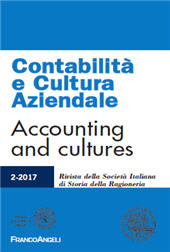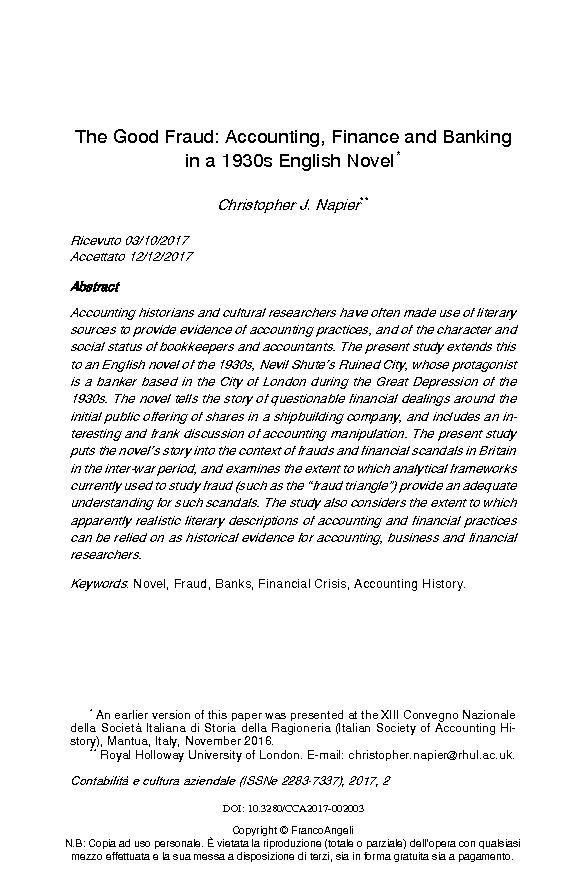The Good Fraud: Accounting, Finance and Banking in a 1930s English Novel
43-70 p.
Accounting historians and cultural researchers have often made use of literary sources to provide evidence of accounting practices, and of the character and social status of bookkeepers and accountants. The present study extends this to an English novel of the 1930s, Nevil Shute's Ruined City, whose protagonist is a banker based in the City of London during the Great Depression of the 1930s. The novel tells the story of questionable financial dealings around the initial public offering of shares in a shipbuilding company, and includes an interesting and frank discussion of accounting manipulation. The present study puts the novel's story into the context of frauds and financial scandals in Britain in the inter-war period, and examines the extent to which analytical frameworks currently used to study fraud (such as the "fraud triangle") provide an adequate understanding for such scandals. The study also considers the extent to which apparently realistic literary descriptions of accounting and financial practic
es can be relied on as historical evidence for accounting, business and financial researchers. [Publisher's text].
Forma parte de
Contabilità e cultura aziendale : rivista della Società Italiana di Storia della Ragioneria : XVII, 2, 2017-
Artículos del mismo número (disponibles individualmente)
-
Información
Código DOI: 10.3280/CCA2017-002003
ISSN: 2283-7337
KEYWORDS
- Novel, Fraud, Banks, Financial Crisis, Accounting History



